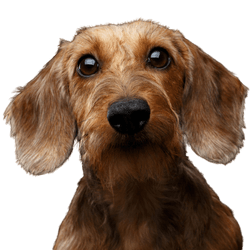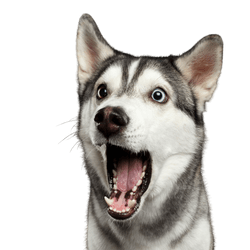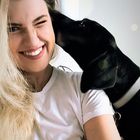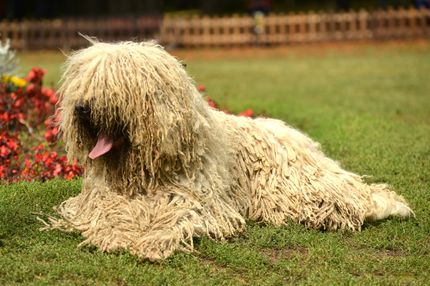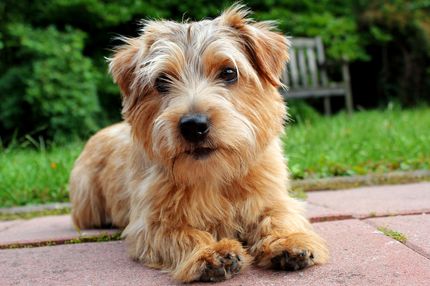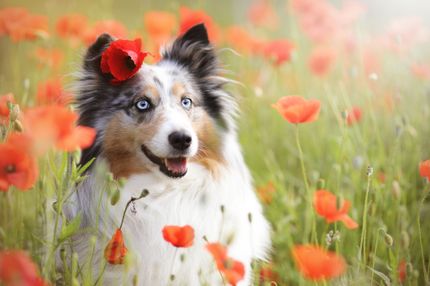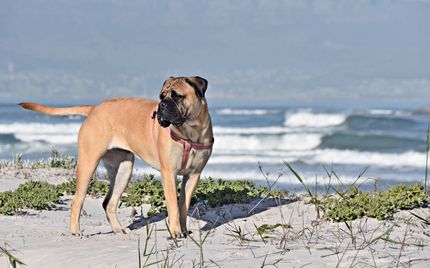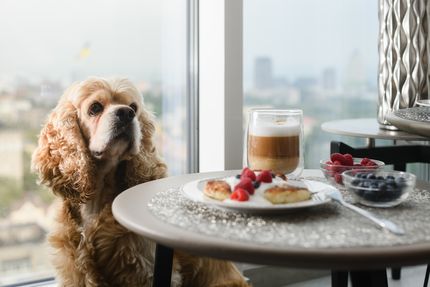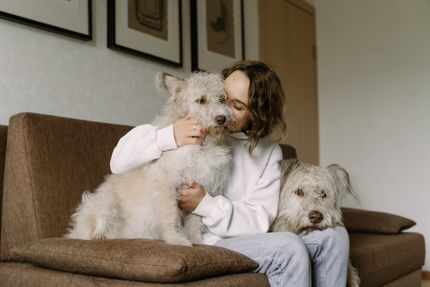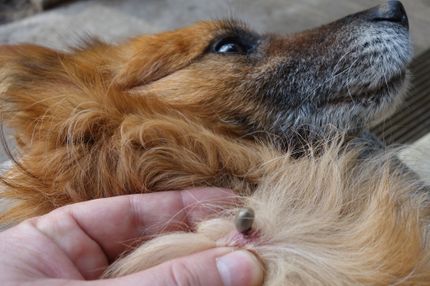Facts & Origin
The Dusky - a Dachshund and Siberian Husky mix
The Dusky is still a relatively uncommon designer dog that is the result of a cross between a Dachshund and a Siberian Husky. This unusual mix unites two very different breeds: the more down-to-earth, courageous and stubborn Dachshund with the enduring, active and often independent character of the Husky. As with many designer dogs, the history of the Dusky is not clearly documented, but it is assumed that, like many other hybrid dogs, it was bred primarily in the USA as a family and companion dog.
Criticism of designer dogs
A common criticism of such crossbreeds is that their size, temperament and health dispositions are difficult to predict - especially when two breeds with such different builds as the husky and the dachshund are combined.
Who is this dog suitable for?
Nevertheless, when responsibly bred and well socialized, the Dusky can be a fun-loving, playful and loyal companion suitable for both active families and experienced dog owners who enjoy exercise and training. However, its suitability as a family dog depends heavily on its individual character - not every Dusky is automatically fond of children or easy to handle. If you decide on this mix, you should be aware that it needs clear leadership, plenty of exercise and understanding for both original types.
| Alternate Name | Dachshund - Husky Mix |
| Origin | Germany - USA |
| Life expectancy | 12 - 16 years |
| Care requirements | low-maintenance - high-maintenance |
| Activity level | average - high |
| FCI group | not recognised |
| AKC group | not recognised |
| KC group | not recognised |
More Dachshund mixes
More Siberian Husky mixes
Attitude, character and temperament of the breed
Possible character traits
The Dusky combines the contrasting characters of its parent breeds in a fascinating way. From the Dachshund, it often inherits a pronounced independence, hunting instinct and curiosity, while the Siberian Husky is known for its love of running, friendly nature and a certain stubbornness. Duskies are considered intelligent, alert and lively, but also have a stubborn character that requires patience and consistency in training. Depending on which genes are stronger, the Dusky can be either calm and easy-going or active and boisterous. Early socialization and sensitive training are therefore crucial.
The Dusky in everyday life
In everyday life, the Dusky is an energetic and attentive companion who needs to be kept busy and mentally challenged. He loves long walks, games and mental tasks, but can quickly develop unpleasant behaviors such as barking, digging or destroying if he is underchallenged. His size and energy do not necessarily make him the ideal beginner's dog - but if you keep him occupied and lovingly managed, you will be rewarded with a loyal, eager-to-learn companion. It is important to provide an everyday routine with a clear framework, exercise and sufficient rest periods.
Character
What diseases can occur?
As with many hybrid dogs, the Dusky can also have health risks from both parents. Dachshunds can have back problems such as herniated discs (dachshund paralysis), especially with long backs. Huskies, on the other hand, are predisposed to eye problems, hip dysplasia and genetic metabolic disorders such as zinc deficiency dermatosis. Epilepsy cannot be ruled out in either breed. Serious breeding with health checks on the parent animals can reduce the risk, but owners should nevertheless look out for the first signs of problems at an early stage.
What does this mongrel look like?
Visually, the Dusky is a real surprise: Some resemble the dachshund with an elongated body and short legs, others show the larger, athletic stature of the husky. The coat color also varies greatly - from black, brown, red to the typical husky characteristics with mask markings and even blue eyes. The coat can be short, medium-length or slightly longer and denser, often with a soft undercoat. Overall, the Dusky appears compact and strongly built, often with an expressive face and an alert, inquisitive look.
| Fur length | short - medium |
| Fur | rough-haired - flat coated |
| Ear shape | Floppy Ear - Standing Ears |
| Tail | short - fanned out |
| Anatomy | strong, rugged, strong, sporty |
| Size ♀ | 17 - 56 cm |
| Weight ♀ | 7 - 23 kg |
| Size ♂ | 17 - 60 cm |
| Weight ♂ | 7 - 27 kg |
| Suitable For | - |
Known Diseases
Dachshund Paralysis
By dachshund paralysis (discopathy) veterinarians mean paralysis of the limbs in dogs.
Overweight
Often, unfortunately, the dogs very much under excess weight. But the dogs themselves are never to blame!
Disc problems
Herniated disc in dogs (discopathy). Herniated discs or dachshund paralysis cause dogs severe pain.
Hip dysplasia (HD)
Hip dysplasia (HD) is a genetic condition in dogs where the hip joint is not shaped properly. This leads to pain, stiffness and restricted movement.
Eye diseases
Often occur with allergies and intolerances.
Skin inflammations
Can be hereditary in certain breeds.
FAQ
-
A Dachshund-Siberian Husky mix usually has the long body and short legs of a Dachshund and the thick coat and blue eyes of a Siberian Husky.
-
An adult Dachshund-Siberian-Husky mix normally weighs between 9-13 kg.
-
Yes, Dachshund and Siberian Husky mixes are generally good with children. They can sometimes be a little stubborn, but overall they are loving and affectionate dogs.
-
Yes, Dachshund and Siberian Husky mixes are very energetic dogs that need a lot of exercise. They are not the best breed for living in an apartment.
-
The Dachshund tends to bark and Huskies also tend to be rather vocal. This means that this mix can also be barky.
